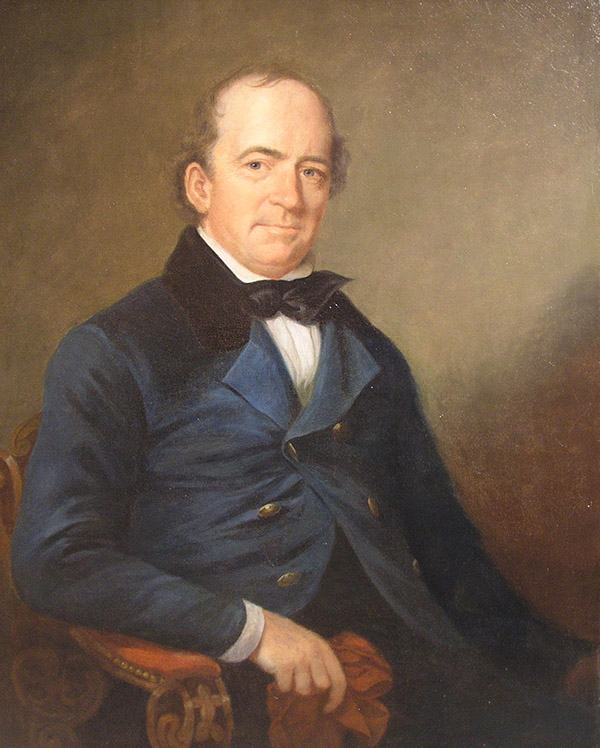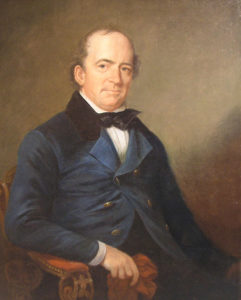George Eustis
George Eustis served as the Chief Justice of the Louisiana Supreme Court from 1846 to 1853.

Courtesy of The Law Library of Louisiana
George Eustis. Unidentified
George Eustis was the first judge to serve as chief justice of the Louisiana Supreme Court, though three men had preceded him in the senior role of the state’s high bench under the title presiding judge. He served as chief justice from March 19, 1846, to May 4, 1853.
Eustis was born on October 20, 1796, in Boston, Massachusetts, and he graduated from Harvard College in 1815. He worked as private secretary for his uncle, William Eustis, who was the US Minister to The Hague, Netherlands, and a former governor of Massachusetts. While in Europe, George Eustis studied law at The Hague. Upon his return to the United States in 1817, he moved to New Orleans. There, he was admitted to the bar in 1822 and established a successful law practice. Always active in politics on the side of the Jacksonian Democrats, Eustis served as attorney general from 1830 to 1832. He championed the development of higher education in Louisiana, and during his term as secretary of state (1832–1834) he pushed for the establishment of a medical school. His efforts led to the 1835 chartering of an institution that later became Tulane University Medical School. As a member of the Constitutional Convention of 1845, Eustis advocated for the establishment of the University of Louisiana, which later became Tulane University.
Eustis was appointed judge of the Louisiana Supreme Court in 1839 to fill the vacancy left by the death of George Mathews, but he resigned after only three months, largely because of dissatisfaction with the administration of Presiding Judge F.X. Martin. The court’s docket had become hopelessly clogged, but Martin refused to alter the traditional “talking court” procedures that had been in place since 1813. Eventually, the new constitution of 1845 completely reorganized the court system. Eustis was appointed the first chief justice of the Louisiana Supreme Court under the 1846 judiciary articles. He quickly urged the adoption of rules to end delays and reduce the docket. The number of cases decided increased from an average of 178 per year under the predecessor court to 414 per year under Eustis’s administration. A man of great determination and integrity, Eustis earned for the court a new respect from Louisiana’s citizens. In 1852 a new constitution again reorganized the court, and Eustis retired from his position.
Eustis was married to Clarisse Allain, from a prominent Creole family, and fathered six children, two of whom also earned political fame in Louisiana. The eldest son, George Eustis Jr., served in the US House of Representatives (1855–1859), and during the Civil War served as secretary to John Slidell, the Confederate Minister to France. James Biddle Eustis, the fifth child of George and Clarisse Eustis, also served in the Confederate government; he went on to be elected to the US Senate and was appointed ambassador to France. George Eustis died in New Orleans on December 22, 1858.
